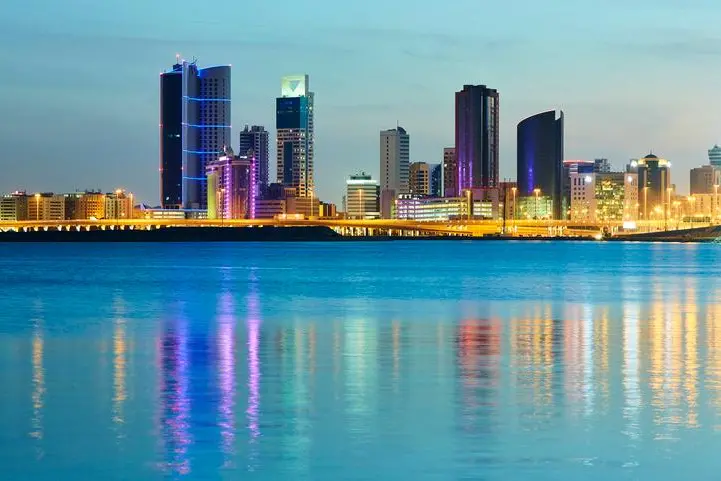PHOTO
Manama is still considered to be among the happiest cities in the world for expats.
That is according to the Expat Insider 2019 survey, an annual report by community website InterNations – which rates cities based on their expat appeal.
Bahrain’s capital came second only to Kuala Lumpur for expat happiness levels.
However, Manama’s overall ranking in the report slipped to 21st – a dramatic drop having placed in the top three cities globally for expats in the previous two years.
The study covers 82 cities and lists the best and worst cities for expats to move to in 2020.
Expats surveyed in Manama expressed dissatisfaction with working hours, rising living costs, transportation and the environment in the latest report.
Manama has slipped to 21st in an index that ranks cities based on their expat appeal
Costs
This year’s report ranks Taipei as the best city for foreigners globally, followed by Kuala Lumpur, Ho Chi Minh City, Singapore, Montréal, Lisbon, Barcelona, Zug, The Hague and Basel.
Kuwait City (82nd) is the least appealing place for expats, behind Rome (81), Milan (80), Lagos (79), Paris (78), San Francisco (77), Los Angeles (76), Lima (75), New York City (74) and Yangon (73).
Doha (12th) scored highest among cities in the GCC, ahead of Abu Dhabi (15), Manama (21), Muscat (28) and Dubai (34).
The survey covered more than 20,000 expats representing 178 nationalities living in 187 countries.
It evaluated quality of urban life (in which Manama was ranked 58th), getting settled (Manama came second), urban work life (Manama was ranked 58th), financial and housing (Manama came 16th), local cost of living (Manama was 26th) and happiness levels (which hit 78pc in Manama).
“After ranking in the top three for two years in a row, Manama only comes 21st out of 82 cities in the expat city ranking 2019,” states the survey.
“The city lost the most ground in the Urban Work Life Index (from 13th in 2018 to 58th in 2019) as, for example, just 63pc are generally happy with their jobs in 2019, compared with 81pc in 2018.”
Furthermore, expats are less satisfied with their working hours (53pc in 2019 compared with 79pc in 2018) and work-life balance (58pc in 2019 compared with 73pc in 2018).
“Only a few companies allow two days off per week,” complains one Jamaican expat in the report.
Furthermore, it states dissatisfaction rates among expats with local transportation (25pc are unhappy) and the environment (22pc) are higher than the global averages (19pc and 17pc respectively).
“Manama also ranks below average for finance (45th): only 44pc feel they have a more than sufficient disposable household income to cover their daily costs (compared with 49pc globally),” states the report.
“In spite of the mediocre financial situation, expats still find it easy to find housing in Manama, with 81pc experiencing little difficulty finding a home (compared with 50pc globally).”
Another positive is that Manama is the best GCC city for settling in, second only in the world to Kuala Lumpur.
“In the Bahraini capital, close to four in five expats (78pc) feel that the people are friendly towards foreigners (compared with 64pc globally) and not quite two-thirds (64pc) find it easy to make new friends (compared with 45pc globally).”
This is the fifth survey in which Bahrain’s ranking has declined due to factors such as higher costs of living.
The GDN reported in July that it was cheaper for individuals and families to relocate to some European cities than Manama, according to the 2019 Moving Price Index – a survey of 85 cities.
Expensive
German-based relocation company Movinga ranked Bahrain as the 39th most expensive city in the world to relocate to.
Meanwhile, Manama was ranked the fifth most expensive Arab city to live in by Mercer’s Cost of Living Survey, while it was ranked 11th in the world for high costs of living in the 2019 Expat Explorer survey by HSBC.
Electricity and water rates have been increasing annually in Bahrain since 2016, with the final increase enforced in March this year as part of a series of austerity measures adopted by the government in 2015 to offset the drop in oil prices.
Consumers in Bahrain also started paying a five per cent Value Added Tax (VAT) on utility bills, among other products and services, from January 1 this year.
In other measures, petrol prices were increased in January last year with the price of premium Mumtaz (95 octane) fuel rising from 160 fils to 200 fils per litre, and cheaper Jayyid (91 octane) fuel costing 140 fils per litre from 125 fils.
sandy@gdn.com.bh
© Copyright 2019 www.gdnonline.com
Copyright 2019 Al Hilal Publishing and Marketing Group Provided by SyndiGate Media Inc. (Syndigate.info).





















